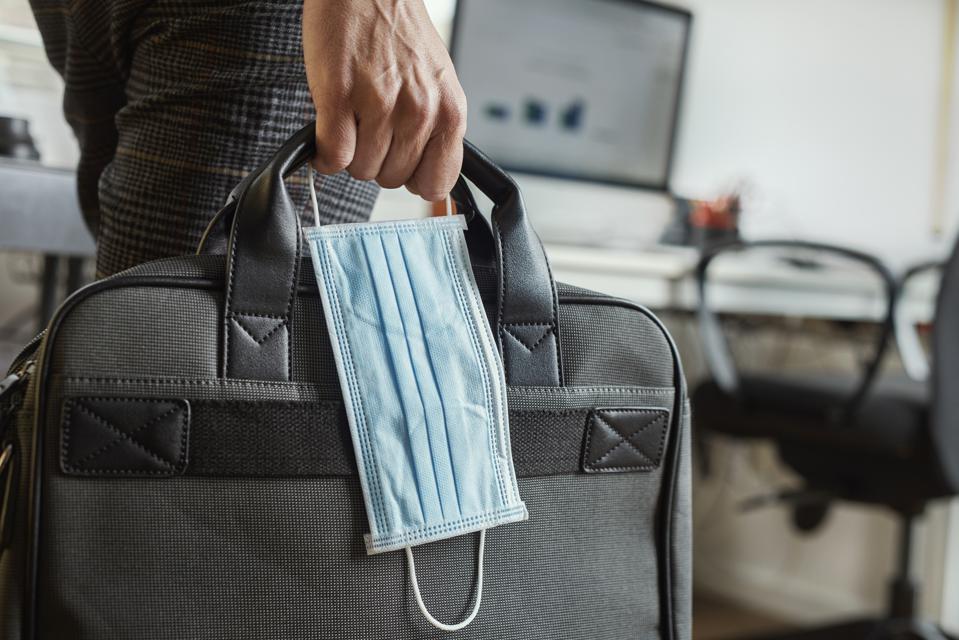94% Of Workers Are Stressed: KPMG Research Reveals Covid-19’s Lingering Effects On Employees
As some people physically return to work, physical and mental safety concepts at work assume a whole new post-pandemic meaning that the businesses must carefully address, cautions Selin Kudret, an assistant professor at Kingston Business School. Nascent evidence for Covid-19’s effects on working lives suggests that organizational leaders’ commitment to physical safety of employees is emerging as a new necessary condition for job engagement and task performance for those who are physically returning to work.
Bear in mind that workers everywhere have operated remotely for more than one year, ever since Covid-19 restrictions were established. And while this period has undoubtedly improved business efficiency, well-being is suffering; 94% of workers are stressed. While this isn’t surprising – Oracle concluded 2020 was the most stressful year ever – people are now at breaking point. Some 78% believe the coronavirus pandemic has severely affected their mental health; 40% are making more flawed decisions, and 90% conclude that newfound work-related stress affects their home lives. The culmination of which is causing unprecedented levels of depression (up 53%), anxiety (up 55%), and even PTSD (up 32%), which is further exacerbated by a growing backlash against employee surveillance.
Recent evidence also suggests that financial – and job security are emerging as key predictors of employees’ enactment of Covid-19 safety behaviors in the workplace. Importantly, in addition to physical safety, Kudret also highlights the importance of mental safety. Recent evidence shows that Covid-19-related health anxiety negatively impacts employees’ goal progress at work, family engagement, and somatic health. With significant work and health outcomes at stake, Kudret recommends that employers tread with caution regarding summoning employees to their pre-pandemic workplaces. Where work can be done remotely, there is great value in acting upon employees’ own volition to flexibly choose their place of work to support their psychological and physical health and ensure harnessing of employees’ full self into work, she concludes.
KPMG’s new consumer pulse survey supports her perspective; The“Big Thaw” reveals several striking findings in various fields, such as spending, employment, relocation, and remote working.
Spending
The data reveals that for the first time since April 2020, spending has increased in areas like entertainment and media and restaurants, up 12% and 15%, respectively. Another interesting finding relates to personal care spending, which is up 16%. Additionally, spending on apparel is up 14%, suggesting increased social activity and events as states emerge from lockdown situations. Moreover, 49% of respondents said their overall expenditures would return to pre-pandemic levels within a year.
Employment
The data reveals over one-third of survey respondents concluding Covid-19 had impacted their employment status, but over 75% reported they could return to work. As a result of the pandemic, 38% of survey respondents said their income had been negatively impacted.
Relocation and remote working
The data reveals that 53% of workers who relocated during the pandemic did so temporarily – they intend to return. In addition, the significant changes in workplace, such as remote working – and practices associated with it – are assumed by most to be permanent. The reason being, they are, on the most part, positive – such as saving on commute time, which was cited most (28%), followed closely by more comfortable space at home (24%) and better work-life balance (24%).
These findings are certainly compelling, given that projections forecast an imminent expansion of that the American economy – the largest annual growth rate since 1984. According to KPMG’s Advisory Industry Leader, Consumer & Retail Scott Rankin, “it’s encouraging to see that spending is rebounding across retail categories. There is much to be optimistic about as more and more people are vaccinated. His sentiment is shared by KPMG’s National Sector Leader, Consumer & Retail Matt Kramer, who suggests “businesses that pivoted swiftly during the pandemic to create more flexibility can be optimistic about their prospects as the recovery accelerates.”
So, what’s next?
Perhaps you read all of this, and you’re convinced, but wonder how to convince the rest of your leadership team to prioritize wellness during a global pandemic. After all, it showed us just how we’re all connected — both in the workplace and at home. And, if you’re still not convinced, the benefit of taking care of your employees will outweigh the cost of doing so. Research suggests companies who adopt wellness initiatives improve employee loyalty, which retains top talent, saving them time, money, and resources required to acquire new hires.
The future of work is upon us, and it’s up to companies to embrace the shift or fall behind. It’s time to rethink your company as a place for human beings to thrive instead of grind. After all, the average person will spend a third of their life working — and so, don’t they deserve some much-needed wellness in their lives, especially at the moment?





